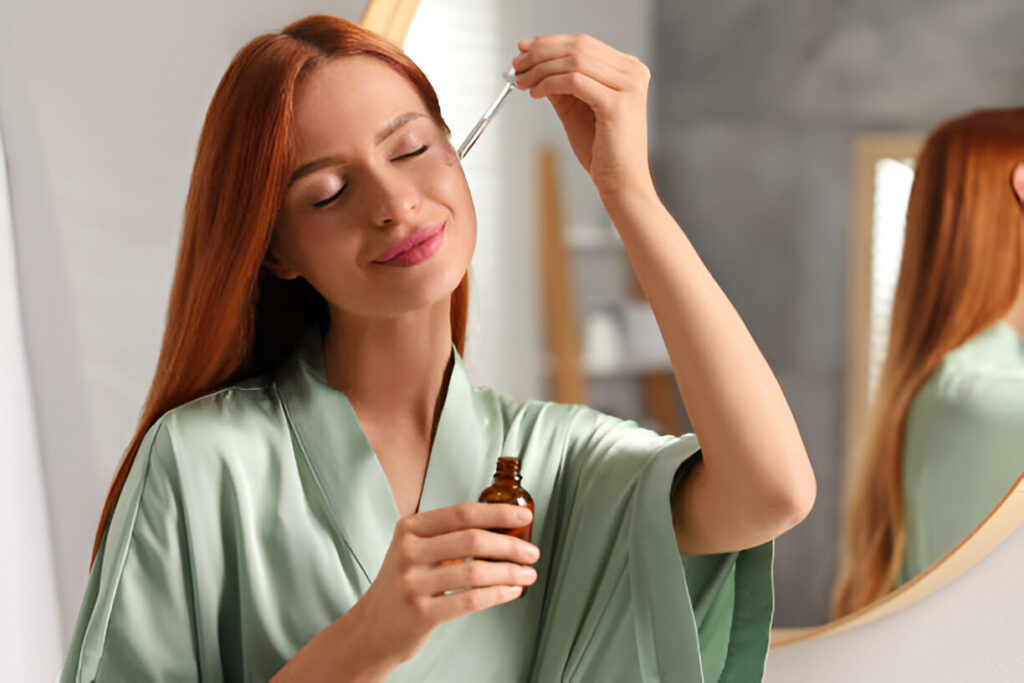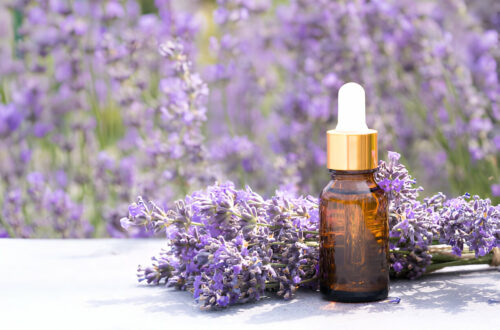Jojoba oil is a mild oil that can be applied directly to the skin. Often considered the best oil for skin, it might offer various health benefits, such as moisturizing the skin and providing antioxidant effects.
The jojoba plant is a strong, long-lasting plant that grows in North America. It thrives in harsh desert climates where most plants cannot survive. It also produces a nut with many healing properties.

The nut of the jojoba plant can be turned into oil. Jojoba oil is gentle and can be used as a carrier oil to mix with other essential oils. It can also be used on its own.
Many people use jojoba oil in their skincare routine, and there are good reasons for that. There is a lot of evidence supporting the use of pure jojoba oil to treat acne, dry skin, and many other skin conditions. Similarly, incorporating Rosehip oil for face care can also provide numerous benefits. Keep reading to learn more about the benefits of using jojoba oil for your skin.
1.It’s moisturizing
Jojoba oil is a humectant ingredient. Similar to argan oil for face care, it attracts water to the top layer of the skin, helping to keep it hydrated. This may help prevent bacterial infections, acne, and dandruff.
2 . It’s antibacterial
Jojoba oil has antimicrobial and antifungal properties. Lab tests found that while it doesn’t kill all bacteria and fungi, it does kill some that can cause salmonella, E. coli infections, and candida. For more information visit National Library of Medicine
3.It’s an antioxidant
Jojoba oil contains natural vitamin E. This vitamin acts as an antioxidant for your skin. Similar to how coconut oil for skin care is valued, jojoba oil can help your skin fight oxidative stress caused by daily exposure to pollutants and toxins.

4.It’s noncomedogenic
Although jojoba oil is a plant-based substance, its makeup is very similar to the oil (sebum) your body naturally produces. Because of this, it is less likely to build up on your skin and clog your pores, leading to fewer breakouts and milder acne.
5.It’s hypoallergenic
On a molecular level, jojoba oil is a wax. While it can be absorbed into your skin, its waxy nature forms a soothing seal on the surface.
Unlike other plant-based oils, jojoba oil is usually nonirritating, and allergic reactions are rare.
6. It helps control sebum production
Jojoba oil helps control sebum production because it closely resembles the natural oil your body makes.
When you apply jojoba oil to your skin, it soothes and moisturizes. This signals to your hair and sweat glands that your skin has enough moisture, so they produce less sebum.
This helps prevent your skin from looking oily and reduces acne caused by clogged pores.
7.It may help promote collagen production
The antioxidants in jojoba oil might help your body produce collagen. Collagen is a protein found in your skin, joints, and cartilage.
As you age, collagen levels decrease, which can change your facial structure. Some studies suggest that antioxidants applied to the skin can improve collagen production.
8.It may help speed up wound healing
Jojoba oil shows promise in helping wounds heal faster. Similar to olive oil for skin care, early research suggests that it helps skin cells stick together after a scratch or cut.
This might also explain its effectiveness in treating acne and acne scars. The healing properties could be related to the natural vitamin E in jojoba oil.

9.It may help soothe eczema, psoriasis, and other dry skin conditions
Jojoba oil has anti-inflammatory and healing properties. Applying it to the skin may help relieve dryness, flaking, itching, and other symptoms.
People with inflammatory skin conditions like psoriasis and eczema may find jojoba oil particularly helpful.
10.It may help soothe sunburns
Jojoba oil is often used in natural sunscreens. One study suggests that vitamin E, combined with other antioxidants, can help protect your skin from sun damage. Jojoba oil contains both.
Sun damage can dry out your skin and cause it to flake. Jojoba oil helps restore vitamin E, adds moisture, and promotes healing to soothe sunburn symptoms.
11.It may help treat acne
A clinical trial shows that jojoba oil might help prevent acne. Similar to castor oil for skin care, it has soothing anti-inflammatory agents, healing properties, moisturizes the skin, and has natural antimicrobial effects. These qualities suggest that jojoba oil could help prevent breakouts and promote healing for mild acne.
12.It may help reduce the appearance of fine lines and wrinkles
Oxidative stress is often linked to fine lines and wrinkles. While there isn’t direct research connecting jojoba oil to treating wrinkles, other plant products with antioxidants have been shown to improve skin elasticity.
This suggests that the antioxidant properties of jojoba oil might help slow the signs of aging when applied to your skin.
13.It may help minimize the appearance of scars
Vitamin E is often recommended for treating scars. Research on how well it works is still ongoing.
If you want to try vitamin E for scars, jojoba oil could be helpful in the healing process. Its natural wound-healing properties and vitamin E content might reduce the appearance of scars.

How to use
Unlike some essential oils, jojoba oil doesn’t need to be diluted and can be applied directly to your skin.
Before using jojoba oil or any new cosmetic product, you should do a patch test to check for allergies. Here’s how to do a patch test:
On the inside of your forearm, apply three or four drops of jojoba oil.
Cover the area with a bandage and wait 24 hours.
After 24 hours, remove the bandage and check the skin. If you don’t see any hives, redness, or irritation, it’s safe to use the oil.
How you use jojoba oil depends on what you want to achieve. You can use it as a lip balm to soothe dry, cracked lips or apply it to your face before bed as an anti-aging serum.
You can also mix jojoba oil with other natural acne-fighting ingredients to make a DIY mask that helps with acne, as some study participants have done.
Jojoba oil is safe to use around your eyes, unlike many other ingredients, so it’s a popular choice for removing oil-based makeup.
Potential side effects and risks Jojoba oil is generally safe to use on the skin because it’s hypoallergenic.
However, in rare cases, it may cause an allergic reaction, with symptoms like hives and itching.
To avoid these side effects, make sure to do a patch test (as described above) before using jojoba oil.
Cold-pressed oils keep more of the plant’s antioxidants compared to those made with the hot-press method. These extra antioxidants may boost the skincare benefits of jojoba oil.
Jojoba oil has many healing properties that might help with skin conditions like acne, eczema, and psoriasis.
You can use it as a cleanser, moisturizer, or spot treatment. It’s safe to apply anywhere on your body, including your face, without diluting it.
If you experience a rash or any allergic reaction, stop using it.





